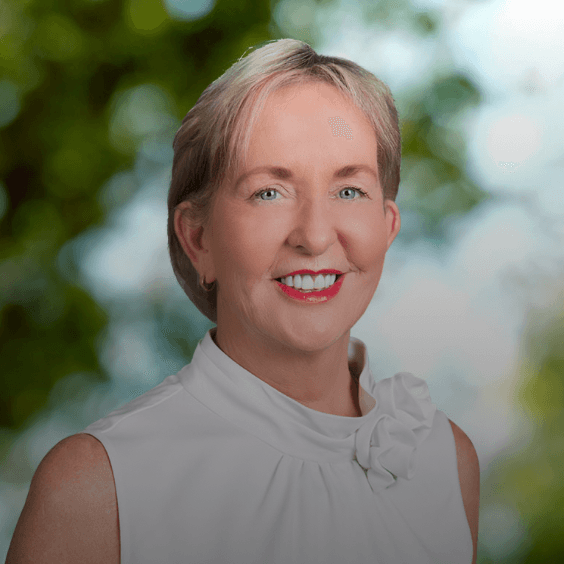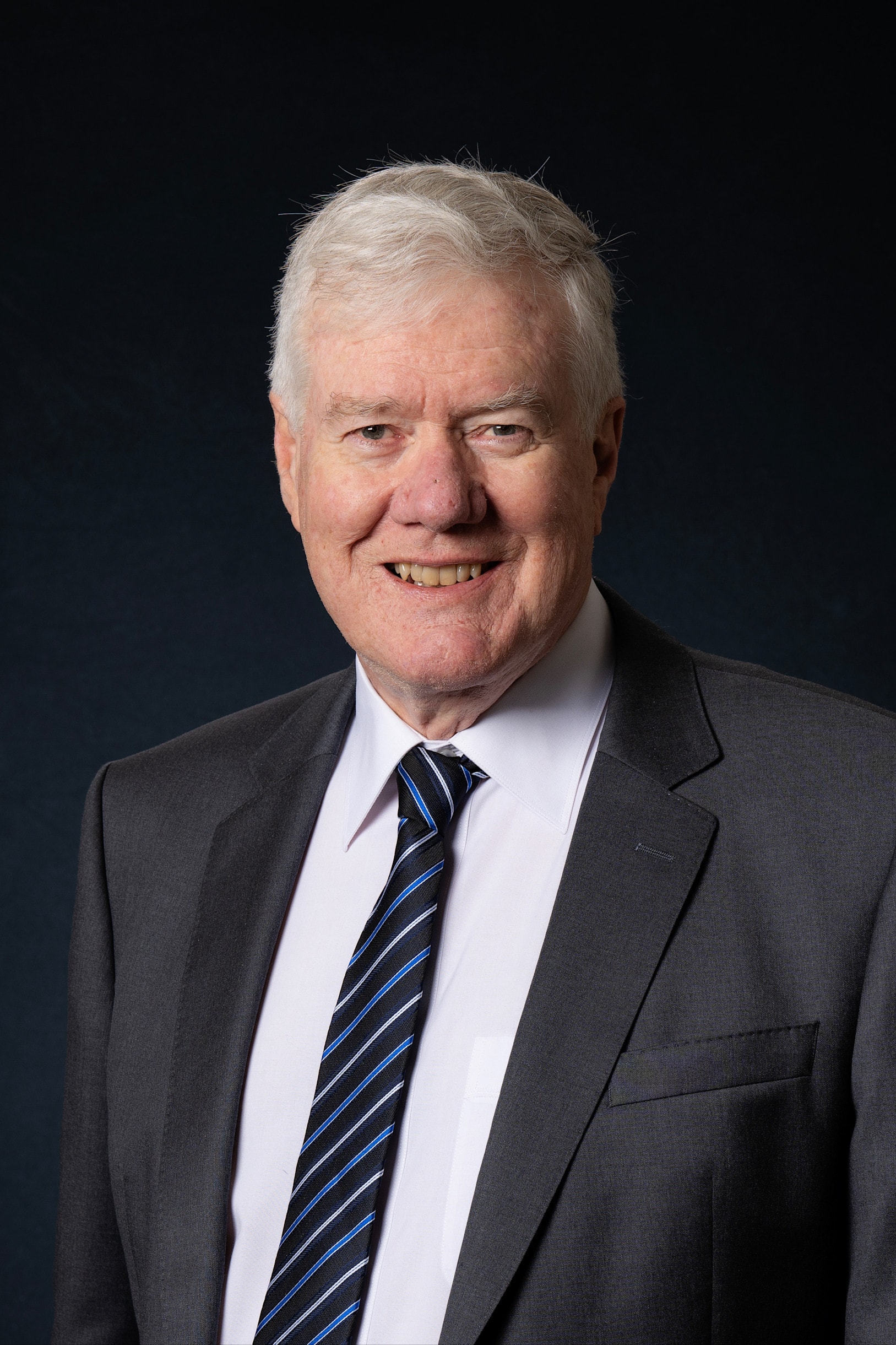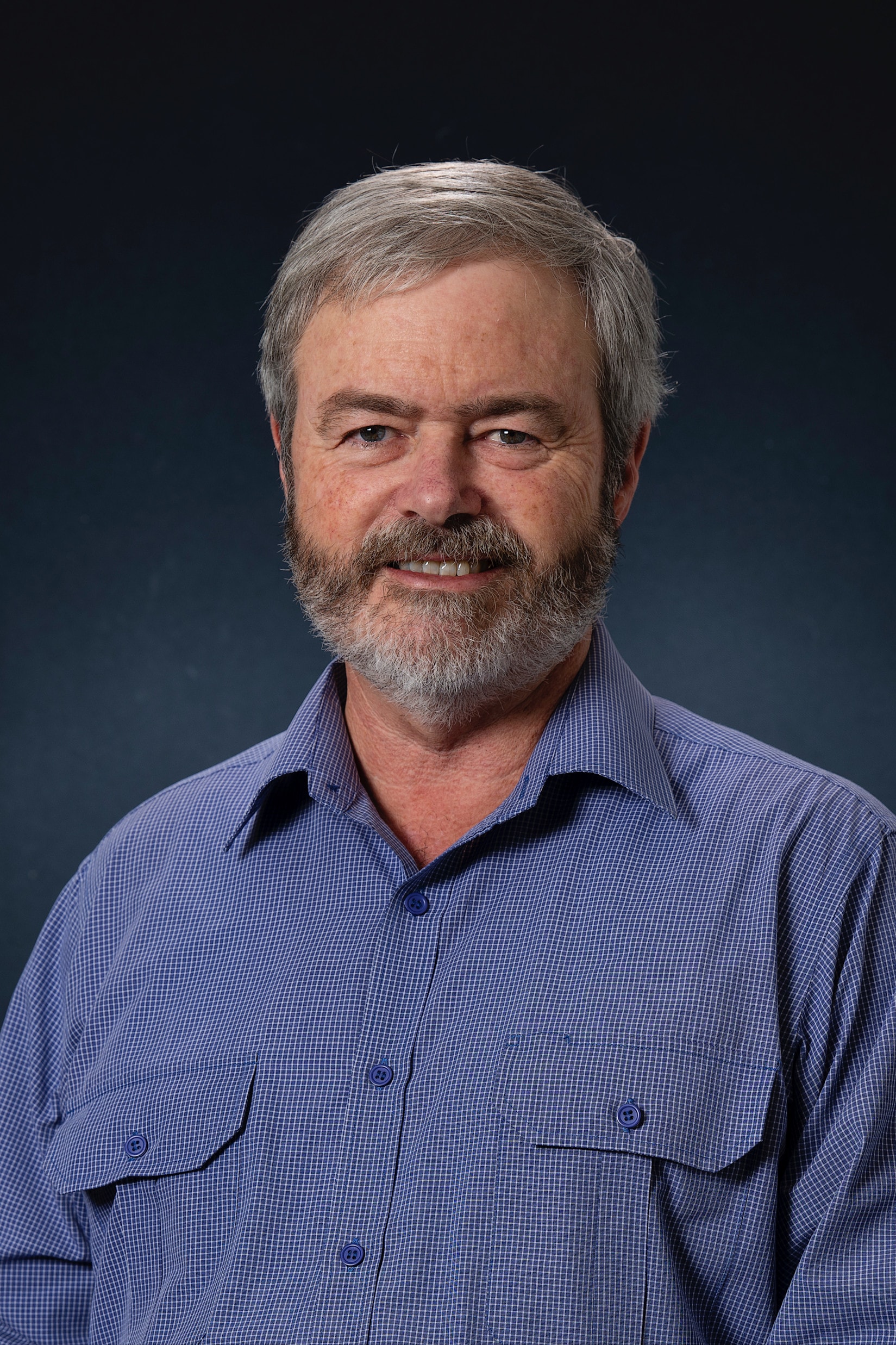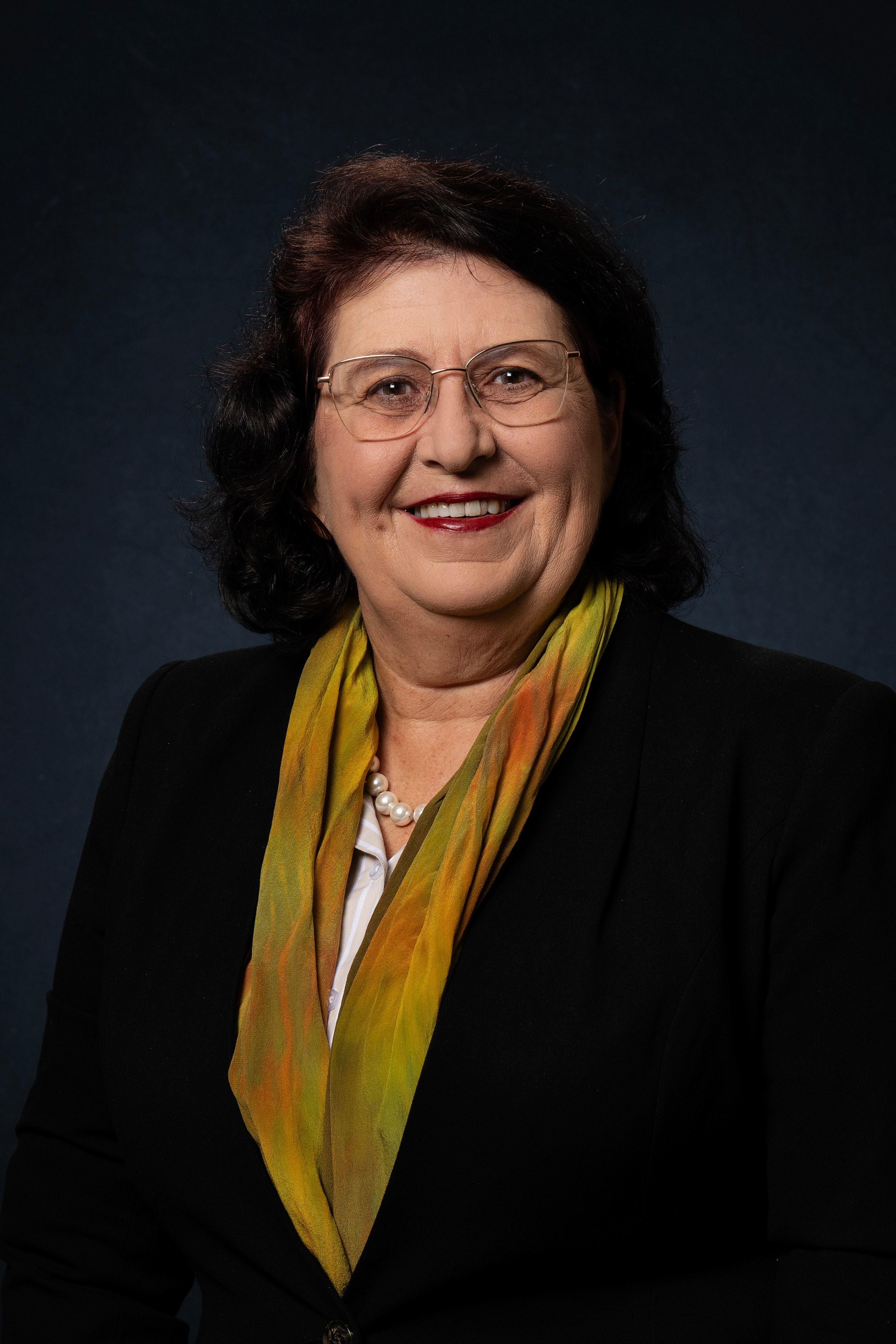Corporate governance

ENERGY. GOVERNED.
Stanwell is committed to best practice corporate governance that enhances our effectiveness as a business, and ensures accountability and transparency to our stakeholders.
For Stanwell, "governance" is the system by which our business is directed, managed and held to account. It encompasses culture, structure and processes for decision-making, accountability, control and behaviour.
Our governance frameworks ensure that:
The Board is accountable to our shareholding Ministers for our successful operation.
Stanwell's strategies and goals are set and agreed upon.
Key risks to Stanwell are identified and managed.
Ethical values, responsible decision-making, and a fair and just culture are promoted.
Stanwell has several formally established management committees, each of which assists the CEO to implement Board-approved strategies, policies and manage risks across the organisation within defined decision-making authority.
OUR SHAREHOLDING MINISTERS:

The Hon. David Janetzki MP – Treasurer, Minister for Energy and Minister for Home Ownership

The Hon. Rosslyn Bates MP – Minister for Finance, Trade, Employment and Training
MEET OUR BOARD:
Paul Binsted BEc, LLB Independent Non-Executive Chair and Director
Member of Audit & Risk Management Committee
Term of appointment: 7 May 2020 to 31 March 2023; 1 April 2023 to 30 September 2026
Mr Binsted has had an extensive career in corporate finance and has an interest in macro and micro economics. From 1982 to 2007, he held senior positions at Lloyds Corporate Advisory Services, Schroders, Salomon Smith Barney (now Citigroup) and was the Managing Director and Joint CEO of Lazard.
Mr Binsted is Chair of the Energy Corporation of NSW (EnergyCo) and has held directorship positions across the energy, renewables, sea ports, mining and rail sectors, including Director of Gladstone Ports Corporation, Director of the Clean Energy Finance Corporation and Chair of its Audit Committee; Council Member of the Australian National Maritime Museum and Chair of its Audit Committee; Chair of Sydney Ports Corporation and the State Rail Authority of NSW; and Deputy Chair of Donaldson Coal Holdings Limited and Paringa Mining and Exploration Company PLC.
He was also a member of the Financial Sector Advisory Council which provided advice to the Government on policies to facilitate the growth of a strong and competitive financial sector; and was a Chief Adviser to the Australian Federal Treasury.
Mr Binsted is a member of the Economics Society of Australia and a Solicitor of the Supreme Court of New South Wales.

Howard Morrison B.ENG (Elect) Independent Non-Executive Director
Member of People & Safety Committee
Term of appointment: 1 October 2023 to 30 September 2027
Mr Morrison’s experience spans 40 years in the electricity industry as an employee and later as a consultant. He has held a variety of senior engineering and managerial roles in the energy generation sector, with accountabilities ranging from asset responsibility and technical service provision, through to asset portfolio management and general management. Mr Morrison has also held positions on joint venture management committees and held Board of Director positions at various research organisations. As a consultant he provided services to the energy, mining and health sectors.
Mr Morrison has been a member of working groups sponsored by the Federal Government on cost of new generation Technologies. He has been part of industry technical reference panels for Queensland State Government and the Australian Energy Market Operator. At a Federal Government level, Mr Morrison has been a member of international delegations for the Carbon Sequestration Leadership Forums (Paris and Oslo).
He has retained an active interest in his chosen profession and presented lectures at the University of Queensland in Generator Inspection and Maintenance as part of the Masters in Power Generation Engineering.

Marianna O’Gorman LLB (Hon), MClimChange, GAICD, GAIST, GDLP Independent Non-Executive Director
Member of Audit & Risk Management Committee Chair of People & Safety Committee
Term of appointment: 1 October 2021 to 31 May 2024; 1 June 2024 to 31 May 2028
Ms O’Gorman brings governance expertise in the areas of Environmental, Social, Governance (ESG), clean energy technology and public policy.
Marianna is a company director with governance roles across the public and not-for-profit sectors including with clean-tech enabler, the Australian Renewable Energy Agency and think tank, the McKell Institute. With a passion for gender equality, she is also a Chief Executive Women (CEW) committee member and a founding committee member of an organisation to promote gender equality in politics.
Her governance and sustainability leadership was recognised by CEW as one of its inaugural Sustainability Scholars, the Australian Institute of Company Directors (AICD) though their Rural and Regional Leaders Scholarship and by the Australian National University as a Garnaut Prize recipient.

Jane Schmitt LLB, LLM, GAICD Independent Non-Executive Director
Member of the People & Safety Committee
Term of appointment: 1 June 2024 to 31 May 2028
Ms Schmitt is a lawyer by profession, with significant experience in senior executive roles and board governance across several sectors, including health, sport, energy and education.
Her significant governance background has provided her with a deep understanding of board relationships and engagement, along with contemporary governance practices necessary to support the achievement of strategic goals and a positive board culture aligned to the organisation’s values and purpose. She also brings expertise in advocacy, strategy and policy development, governance, stakeholder engagement and corporate affairs.
She is currently a non-executive director of Yourtown and Brisbane North PHN and provides CEO consultancy services to The Institute of Quarrying Australia.

Laurie Lefcourt FCA, GAICD Independent Non-Executive Director
Chair of the Audit & Risk Management Committee
Term of appointment: 1 June 2024 to 31 May 2028
Ms Lefcourt has an extensive background in financial, strategic and risk management, particularly in the resources, construction, and infrastructure sectors. She has held senior management and executive roles across Rio Tinto, Queensland Rail, Sinopec Oil and Gas, and Wiggins Island Coal Terminal. She is the founder of Sage Strategies Pty Ltd, a boutique consulting firm specialising in strategy and risk management, finance team mentoring, and coaching.
Ms Lefcourt has been a non-executive director for the past six years. She is currently on the Board of Acrow Ltd (ASX:ACF), and chairs its Audit and Risk Committee. She also serves as Independent Audit, Risk and Improvement Committee Chair for three regional councils.
Ms Lefcourt was previously a non-executive Director and Chair of the Audit and Risk Committee of Tamawood Ltd (ASX:TWD), Advance NanoTek Ltd (ASX:ANO), and SenterpriSYS Ltd (NSX:SPS), and was a member of the Jabiru Town Development Authority and Central Queensland University Council.

John Thompson AM Licensed Plumber and Drainer, Mediation Practitioner Certificate (UK) Independent Non-Executive Director
Member of People & Safety Committee
Term of appointment: 1 October 2023 to 30 September 2027
Mr Thompson served as a Queensland Industrial Relations Commissioner for twenty years and spent six years at the Australian Industrial Relations Commission (now the Fair Work Commission). Other roles included Co-Reviewer of the Five-Year Review of the Queensland Industrial Relations Act 2016, and Co-Head of Australia’s first independent panel to advise on ethical procurement for government suppliers.
Mr Thompson has also held several senior positions in the Trade Union Movement including General Secretary of the Queensland Council of Unions, Secretary of the Plumbers and Gasfitters Union and Executive Member of the Australian Council of Trade Unions.
Current positions held by Mr Thompson are Chair of the Contract Cleaning Industry (Portable Long Service Leave) Authority and the Queensland Government’s Tripartite Procurement Advisory Panel, and Referee for the Development Tribunal, Queensland Department of Housing, Local Government, Planning and Public Works.
Mr Thompson was previously a director across a variety of organisations including QSuper; Sunsuper Building Unions Superannuation Scheme – Queensland; WorkCover Queensland; Queensland Curriculum Council; State Training Council; Construction Industry Training Foundation Trust; Qleave – Portable Long Service Leave – Building and Construction; Workplace Health and Safety Committee (Building and Construction); Building Industry Apprenticeship Advisory Committee; Plumbers and Drainers Examination and Licensing Board; and Queensland Performing Arts Trust.
In the 2023 King’s Birthday Honours, he was appointed a Member (AM) of the Order of Australia (General Division) for significant service to Industrial Relations in the Building and Construction Industry.

OUR PRINCIPLES
As a Government-Owned Corporation (GOC), Stanwell complies with the guidance documents for GOCs issued by Queensland Treasury, including guidelines for corporate governance, investment and financial arrangements.
The role and function of our Board
Our Board’s primary function is to ensure that Stanwell and its controlled entities have an appropriate corporate governance structure which creates and protects shareholder value. The Board derives its authority to act from Stanwell’s Constitution. The Board’s responsibilities are set out in in a formal charter and include:
monitor the progress of Stanwell’s commitment to the elimination of work-related injuries and occupational illnesses;
review and approve the corporate strategy and financial plans;
oversee and monitor organisational performance and the achievement of Stanwell’s strategic goals and objectives;
ensure the adequacy and effectiveness of key aspects of Stanwell’s financial management, reporting and accounting practices;
oversee the review and update of corporate governance arrangements and processes as necessary to support Stanwell’s commitment to best practice corporate governance;
monitor and influence Stanwell’s culture, values, reputation and ethical standards;
appoint and assess the performance of the CEO and senior executives;
approve, review and oversee systems of risk management, internal control and regulatory compliance; and
report to and communicate with Stanwell’s shareholding Ministers and other stakeholders.
Our Board Committees
Stanwell’s Board has two established committees:
People and Safety Committee
Audit and Risk Management Committee
These committees assist in the execution of the Board’s role and allow detailed consideration of complex issues. The roles, responsibilities and delegated authorities of each committee are set out in their respective committee charters.
How we evaluate board, committee and individual directors
The Board evaluates its performance, the performance of individual directors, the Chair and the Board committees at regular periods. The People and Safety Committee is responsible for assessing the framework and the processes used for conducting the performance evaluations.
Annual performance evaluations of the Board’s committees are also undertaken with the results returned to the Board for discussion.
As part of the Board’s commitment to continuously improving its governance practices, the last agenda item of every Board meeting is a critique of the Board’s performance.
The Board has established a Composition Matrix which outlines the range of knowledge, skills and cultural attributes which have been assessed as ideal for the Stanwell Board to hold to drive Stanwell’s strategic direction as well as to effectively govern the organisation.
Our appointment process for directors and ensuring director independence
Stanwell’s directors are appointed by the Governor-in-Council. Appointments are for a specific period. The Board regularly reviews and assesses the independence of directors and the materiality of any relationship between a director and Stanwell or any other interest which may impact a director’s independence.
We have a Code of Conduct that we live every day
Stanwell’s core values of We care; We adapt; and We deliver are integral to Stanwell’s culture and influence the way we engage with our customers, suppliers, partners, and our local communities as well as each other. Our values provide the foundation to the Way We Work at Stanwell Code of Conduct and promotes ethical and responsible decision making and high standards of integrity, fairness and equity is all aspects of employment with Stanwell.
The Code of Conduct is supported by a number of detailed policies that together from the Stanwell Code of Conduct Policy Framework.
We protect whistleblowers
Our Whistleblower Protection Policy encourages employees, contractors, service providers (including consultants), and suppliers to report activities or behaviour that may be unlawful or unethical. We want all stakeholders to feel confident about raising concerns regarding any questionable activities and are dedicated to protecting the confidentiality, dignity, and career of anyone who reports serious concerns.
All reported concerns are investigated in a confidential, fair, and objective manner. If an investigation reveals wrongdoing, Stanwell is committed to taking appropriate action against those who do not meet our standards of behaviour.
We take steps to prevent fraud and corruption
Stanwell’s Fraud and Corruption Prevention Policy outlines our commitment to preventing, identifying and addressing all acts of fraud and corruption against Stanwell. Liaison Officer Phone: 1800 671 902 Email: company.secretary@stanwell.com Mail: C/- Company Secretary GPO Box 800 Brisbane QLD 4000
We seek to avoid, manage or address any conflicts of interest
Stanwell’s Conflicts of Interest Policy sets out our expectations about the way in which conflicts of interest (that is, actual, potential or perceived conflicts of interest) will be addressed and managed.
The Board is conscious of its obligation to ensure that directors avoid conflicts of interest between their duties as directors of Stanwell and their other interests and duties. All directors are required to provide written disclosure on appointment of any business or other relationship that he or she has directly, or as a partner, shareholder or officer of a company or other entity that has an interest in Stanwell or another related entity. At least annually, or when relevant changes occur, directors are required to update these disclosures.
We delegate authority to manage our business effectively
Stanwell’s Constitution allows the Board to delegate any of their powers as Directors (as permitted by the Corporations Act 2001 (Cth) and the Government Owned Corporations Act 1993 (Qld)), including delegation to a committee of directors or any other person on the terms and subject to any restrictions that the Board may decide.
The delegation of the Board’s specific standing powers and limits of authority are documented in the Board Charter, the Board Delegations of Authority Policy, the Audit and Risk Management Committee Charter and the People and Safety Committee Charter.
The principles by which the CEO sub-delegates the power and authority vested by the Board are documented in the Stanwell CEO Manual of Authorities. These principles govern decision-making and ensure that the financial transactions of Stanwell are executed within the scope of delegated authorities and balance effective oversight by the Board with appropriate empowerment and accountability of Stanwell’s senior executives and employees.
We maintain integrity when trading in securities
Our Trading in Securities Policy guides how Stanwell’s directors and employees can trade in securities. The policy raises awareness about insider trading laws from the Corporations Act 2001 and ensures everyone at Stanwell knows the rules and restrictions on trading when they have price-sensitive information.
Audit and Risk Management Committee
Stanwell has in place an Audit and Risk Management Committee that is chaired by an independent director, who is not the chair of the Board. The Committee assists the Board in overseeing the reliability and integrity of financial reporting practices, accounting policies, auditing and external reporting. The Committee provides advice to the Board on Stanwell’s financial statements, financial systems integrity and material risks. It also oversees compliance with applicable laws, regulations and corporate policies. Read the Audit and Risk Management Committee Charter.
Internal audit
Stanwell has an internal audit function that has the overall objective of assisting the Stanwell Board and all levels of management to discharge their responsibilities in maintaining Stanwell as a well-controlled, economic, efficient and effective organisation that complies with its statutory obligations.
The internal audit function operates under the terms of the Internal Audit Charter. The charter is reviewed annually by the Audit and Risk Management Committee and formalises and communicates the purpose, role, authority, responsibilities, scope and operational framework of the internal audit function.
External audit
As a Government Owned Corporation, Stanwell’s external audit is performed by, or on behalf of, the Queensland Audit Office. The external auditor’s role is to provide an independent opinion that Stanwell’s financial reports are true and fair and comply with applicable regulations. The Queensland Audit Office has unfettered access and can examine and report to Parliament on the efficiency and effectiveness of any aspect of public sector finances and administration.
Compliance and Regulatory Management
Stanwell operates in a highly complex and highly regulated environment with many compliance obligations. Our Compliance and Regulatory Management Policy outlines the principles and commitments with respect to managing legal and regulatory compliance risks. We have a Legal and Regulatory Compliance System, which ensures our employees are aware of their compliance obligations and responsibilities.
The Audit and Risk Management Committee assists the Board by regularly reviewing and overseeing the systems of risk management, internal control and legal and regulatory compliance.
Informing our shareholders
In line with the requirements of the Government Owned Corporations Act 1993 (Qld), shareholding Ministers are advised in a timely manner of all issues likely to have a significant financial, operational, employee, community or environmental impact. Stanwell also regularly assesses the key information requirements of its stakeholders. See more detail on information provision under Principle 6.
Informing the public through our Release of Information Publication Scheme
Stanwell is committed to providing the public with information about Stanwell in a timely and open manner. As a Queensland Government Owned Corporation, Stanwell has adopted the Queensland Government’s ‘push’ model for the routine and proactive release of information into the public domain via Stanwell’s Release of Information Publication Scheme.
Our communication with shareholding Ministers
Stanwell is committed to ensuring that our shareholding Ministers are continually and appropriately informed of our performance and activities. Communication is undertaken through a number of forums. These include:
Statement of Corporate Intent
Corporate Plan
Quarterly Reports
Annual Report
Briefings
The Statement of Corporate Intent and Corporate Plan provides a transparent set of agreed performance criteria and strategic objectives on which to report to shareholding Ministers and their representatives via the Quarterly Report. The Statement of Corporate Intent (with commercially sensitive information deleted) is tabled in Parliament and published on this website.
An Annual Report containing those matters outlined in section 120 of the Government Owned Corporations Act 1993 (Qld) is also tabled in Parliament and published on this website. Briefings to shareholding Ministers and their departments are conducted on a regular basis for the purpose of disclosing business activities and performance against agreed targets.
Our effective management of enterprise risk and business resilience
Effective risk management is a core part of Stanwell’s governance and operations. Stanwell’s Board is responsible for overseeing the establishment of systems for risk management including the key frameworks and policy components. The Board has adopted the Enterprise Risk and Business Resilience Policy, Enterprise Risk Management Framework, Risk Appetite Statement and Risk Evaluation Matrix which are consistent with ISO 31000:2018 Risk Management Principles and Guidelines and COSO: Enterprise Risk Management Integrating with Strategy and Performance (2017).
Stanwell is committed to delivering an enterprise risk and business resilience platform across all levels of the business. The implementation and maintenance of our risk and resilience function is fundamental to Stanwell achieving its strategic and operational objectives. Our three lines of defence model informs our approach.
The Board, its committees and the Executive Leadership Team collectively have the responsibility and accountability to set Stanwell’s objectives and supporting strategies and to ensure that the ‘three lines of defence’ are effectively and continually interacting with each other so that risks are being managed.
The Audit and Risk Management Committee receives presentations from management at each meeting on Stanwell’s material strategic risks (both financial and non-financial), the controls in place to manage those risks and actions to reduce the risk to the target level within a prescribed timeframe.
Director remuneration
The fees paid to directors for serving on the Board and on the committees of the Board are determined by shareholding Ministers and advised to Stanwell.
Our CEO and senior executive remuneration and performance review process
Each year, the Board, with the assistance of the People and Safety Committee, undertakes a formal process of reviewing the performance of the CEO and senior executives. Remuneration increases for the CEO and senior executives is determined with regard to market salary movements and individual performance.
At-risk performance incentive payments for the CEO and senior executives are tied to the achievement of pre-determined Board-approved organisation wide, business division and individual performance targets. The CEO is not present at the Board meeting or People and Safety Committee meeting when the CEO’s own remuneration and performance are being considered.
When increasing senior executive remuneration or awarding incentive payments, the Board must comply with the Queensland Government's Policy for Government Owned Corporations Chief and Senior Executive Employment Arrangements as amended from time to time.
Our employee remuneration approach
The People and Safety Committee oversee and provide advice to the Board on employment strategies and frameworks. The Committee makes recommendations to the Board on Enterprise Agreement (EA) frameworks as well as remuneration settings for non-EA employees and the remuneration and other terms of employment for senior executives.
Subscribe to our newsletter
STANWELL SPARK
Receive news from Stanwell to your email every quarter and learn more about how we are transforming energy generation.
- SUSTAINABILITY APPROACH
SUSTAINABILITY APPROACH
Our sustainability commitmentsFind our more about our sustainability strategy
- GOVERNANCE
GOVERNANCE
Corporate governanceLearn more about our board and corporate governance processes


